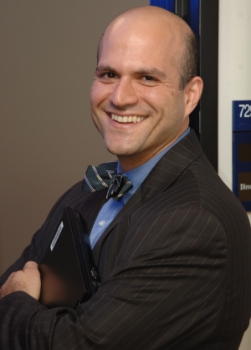 In one of his first public appearances after stepping down from the ONC, former National Coordinator Dr. Farzad Mostashari didn't talk much about his future plans. But, speaking at the Digital Health Innovation Summit in Boston, he did give his perspective on a number of issues in healthcare and healthcare technology.
In one of his first public appearances after stepping down from the ONC, former National Coordinator Dr. Farzad Mostashari didn't talk much about his future plans. But, speaking at the Digital Health Innovation Summit in Boston, he did give his perspective on a number of issues in healthcare and healthcare technology.
Mostashari told interviewer Thomas Goetz, a Robert Wood Johnson Foundation innovation fellow, that the ONC's Meaningful Use program has made real progress in increasing EHR adoption -- from 8.8 percent using basic EHR functions in 2008 to 44 percent in 2012. That increases the amount of data available to doctors about patients and populations. But the next step is making sure providers are individually incentivized to use that data to make a change.
"So I mentioned that data is oxygen, but oxygen doesn't burn," he said. "Oxygen has to be combined with fuel, and the fuel for healthcare, the thrust for healthcare is money. In healthcare, it's never about the money. And it's always about the money. So what has to happen is the healthcare incentives have to change."
Doing some rough math, Mostashari said the average primary care practice makes about $300,000 in revenue and takes home about half of that. But the patients of that practice might spend as much as $10 million. He explained that accountable care organizations give providers an incentive to reduce those costs.
"Ten doctors around one table is $100 million of healthcare spending," he said. "Think about that. And if they can reduce that healthcare spending by 5 percent, they get to keep half of it. You think they can't? You think primary care docs don't know how to reduce healthcare spending by 5 percent? Of course they do! They've just have no motivation to."
Mostashari also talked about the often-heard idea that too much government regulation stifles innovation. He said that some times it can, but at other times, standards and regulations create more opportunity for innovation. He used the example of the Blue Button program under Meaningful Use. Giving people access to their own health data has opened up opportunities for companies to build apps that will use that data in various ways.
In fact, Mostashari said, the fear of regulation, from people who don't understand it well, is often a bigger barrier than the regulation itself.
"First, make sure you understand what the regulations say, and why the regulations are what they are," he said. "I do think there's a role for demystifying what the regulators are thinking and why they're thinking it for the innovators, so they're not afraid of it."
If regulators are doing their job, he said, they will prevent fraud or abuse of the system without getting in the way of innovators.
"If you're delivering better health care at lower cost, you're going to do well," he said. "Don't worry about regulatory risk, because you're doing what everybody wants you to do. If you're delivering the same care at a higher cost, worry about that!"
Mostashari has been a fellow at the Brookings Institute for the last month. After that, he said, he's still working out where to go.
"[US Chief Technology Officer] Todd Park said don't make any decisions for three months," Mostashari said. "[Brookings] is a great place to keep your hand in, but have an opportunity to talk to a lot of people."














